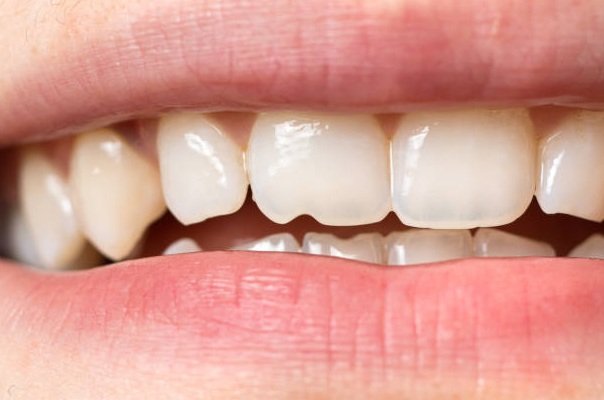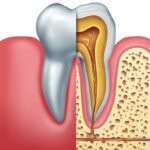A bright smile is not only a symbol of beauty but also an indicator of good oral health. However, even the most diligent oral care routines can sometimes fall short in preventing dental issues. One such problem that can sneak up unexpectedly is a cracked tooth. While a cracked tooth should be evaluated and treated by a dental professional, there are natural remedies and measures you can take to alleviate pain and potentially aid in the healing process. In this comprehensive guide, we will explore the possibilities of fixing a cracked tooth naturally, from understanding the nature of the issue to exploring various home remedies and preventive measures.
Is it Possible to Fix a Cracked Tooth Naturally?
Before delving into the realm of natural remedies, it’s crucial to understand the nature of a cracked tooth and what can and cannot be achieved through natural means. A cracked tooth typically occurs due to a variety of factors, including trauma, teeth grinding (bruxism), and even biting into hard foods. The extent of the crack can range from superficial lines on the enamel to more severe fractures that extend deep into the tooth’s structure.
While natural remedies can help manage the symptoms and promote oral health, they cannot magically mend a severely cracked tooth or replace the need for professional dental care. Cracked teeth require appropriate dental intervention, such as bonding, crowns, or root canals, depending on the severity of the damage.
However, natural remedies can play a supplementary role in the healing process by relieving pain, reducing inflammation, and maintaining overall oral health. Let’s explore some of these natural remedies and practices in more detail.
Natural Remedies for a Cracked Tooth:
1. Saltwater Rinse
A simple and effective natural remedy for a cracked tooth is a saltwater rinse. Mix half a teaspoon of salt into a glass of warm water and use it as a mouthwash. This saline solution can help reduce inflammation, alleviate pain, and prevent infection in the affected area. Rinse your mouth with this solution several times a day, especially after meals and before bedtime.
2. Clove Oil
Clove oil is known for its analgesic and antibacterial properties, making it a valuable natural remedy for toothaches and cracked teeth. Soak a cotton ball in a few drops of clove oil and apply it gently to the affected area. The numbing effect of clove oil can provide temporary relief from pain. However, use it sparingly and avoid prolonged contact with your gums, as it can cause irritation.
3. Turmeric Paste
Turmeric is celebrated for its anti-inflammatory and antimicrobial properties. Create a paste by mixing turmeric powder with a small amount of water to form a thick, consistent mixture. Apply this paste directly to the cracked tooth and surrounding gum area. Allow it to sit for a few minutes before rinsing with warm water. Repeat this process a few times a day to help reduce inflammation and promote healing.
4. Cold Compress
A cold compress can help reduce swelling and alleviate pain associated with a cracked tooth. Place ice cubes in a clean cloth or plastic bag and hold it against the affected area for 15-20 minutes. Ensure that you wrap the ice pack to avoid direct contact with the skin. This can be repeated several times a day to provide relief from discomfort.
Home Remedies for a Cracked Tooth:
In addition to natural remedies, several home care practices can assist in managing a cracked tooth until you can seek professional dental care:
1. Maintain Good Oral Hygiene
Continue to brush and floss your teeth regularly, taking care to avoid putting excessive pressure on the cracked tooth. Use a soft-bristle toothbrush and a gentle, circular brushing technique.
2. Avoid Hard and Crunchy Foods
Steer clear of hard and crunchy foods that can exacerbate the issue. Opt for a soft diet and avoid biting directly on the cracked tooth.
3. Over-the-Counter Pain Relief
Non-prescription pain relievers like ibuprofen or acetaminophen can help manage pain and reduce inflammation. Follow the recommended dosage instructions and consult a healthcare professional if you have any concerns.
4. Dental Wax
If the crack in your tooth has a sharp edge that is causing irritation to your tongue or cheek, you can use dental wax to cover it temporarily. Dental wax is readily available at most drugstores and can provide relief from discomfort.
Things You Can Do to Relieve the Pain of a Cracked Tooth:
Managing pain is often a top priority when dealing with a cracked tooth. Here are some additional measures you can take to alleviate discomfort:
1. Maintain a Soft Diet
Stick to soft foods that don’t require extensive chewing. This reduces the pressure on the cracked tooth and minimizes the risk of further damage or pain.
2. Stay Hydrated
Drinking plenty of water helps maintain overall oral health and can alleviate dry mouth, which may accompany a cracked tooth.
3. Avoid Extreme Temperatures
Extreme hot or cold foods and beverages can trigger sensitivity and pain in the cracked tooth. Opt for foods and drinks at moderate temperatures.
4. Use a Sensitivity Toothpaste
Toothpaste formulated for sensitive teeth can help reduce pain and discomfort associated with a cracked tooth. Use it as directed on the product label.
How to Prevent a Cracked Tooth from Getting Worse:
Prevention is key to preserving your oral health and preventing further damage to a cracked tooth. Here are some steps you can take to safeguard your dental well-being:
1. Wear a Mouthguard
If you grind your teeth (bruxism) while sleeping, consider using a mouthguard. This protective device can prevent further damage to your teeth and alleviate stress on the cracked tooth.
2. Avoid Chewing on Hard Objects
Biting down on hard objects like ice, pens, or hard candies can increase the risk of further damage to your teeth. Exercise caution and avoid such habits.
3. Regular Dental Checkups
Schedule routine dental checkups and cleanings with your dentist. Early detection of dental issues, including cracked teeth, can prevent them from worsening.
4. Practice Good Oral Hygiene
Maintain a consistent oral hygiene routine, including brushing, flossing, and using mouthwash. This will help keep your teeth and gums healthy, reducing the risk of dental problems.
In conclusion, while natural remedies and home care practices can provide temporary relief and support healing for a cracked tooth, it’s essential to remember that professional dental intervention is crucial for addressing the root cause and ensuring a long-term solution. Natural remedies can complement dental treatment but should not replace it. If you suspect you have a cracked tooth, consult a dentist promptly to assess the extent of the damage and determine the most appropriate course of action. Additionally, adopting preventive measures and good oral hygiene practices can go a long way in safeguarding your dental health and reducing the risk of future dental issues.












